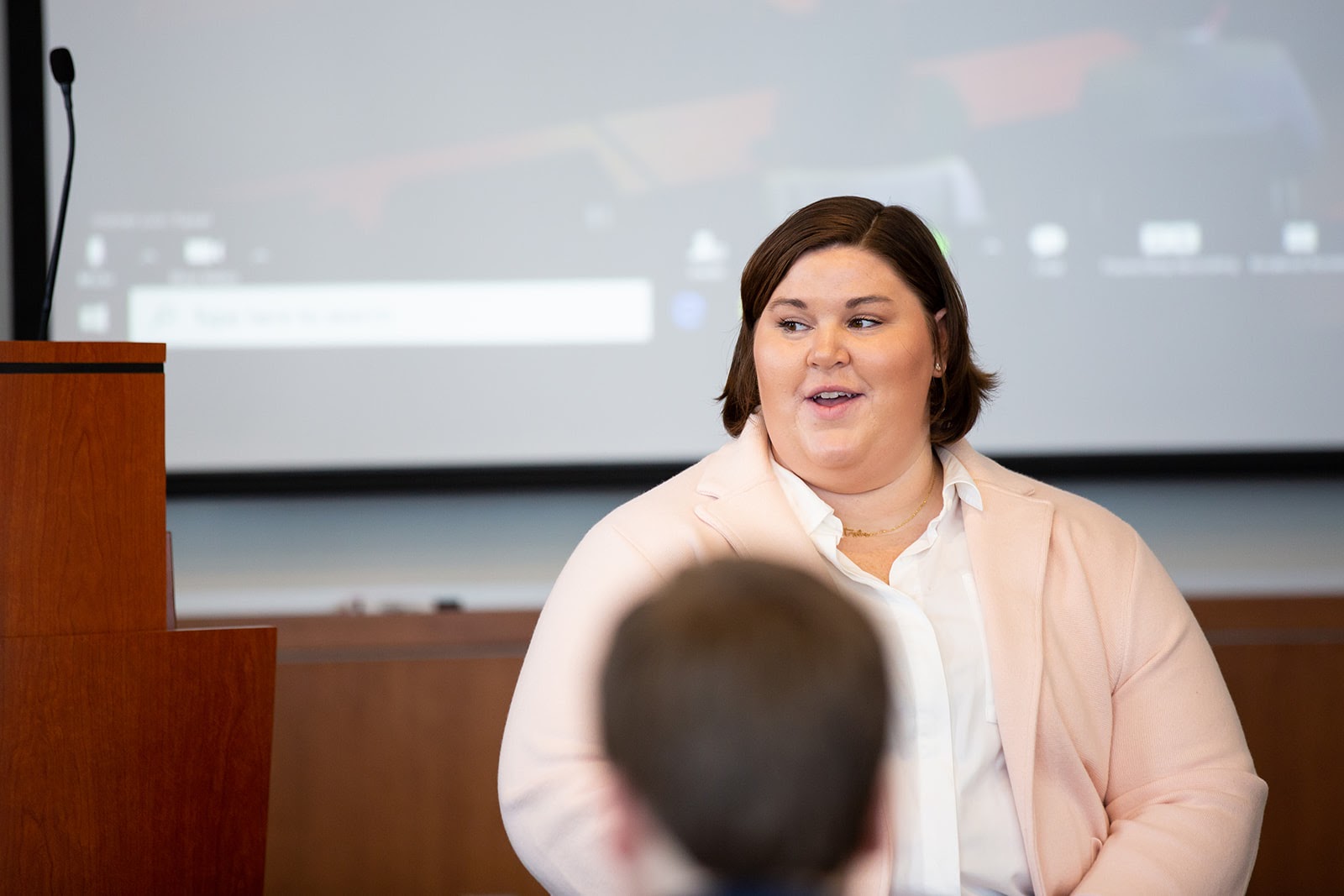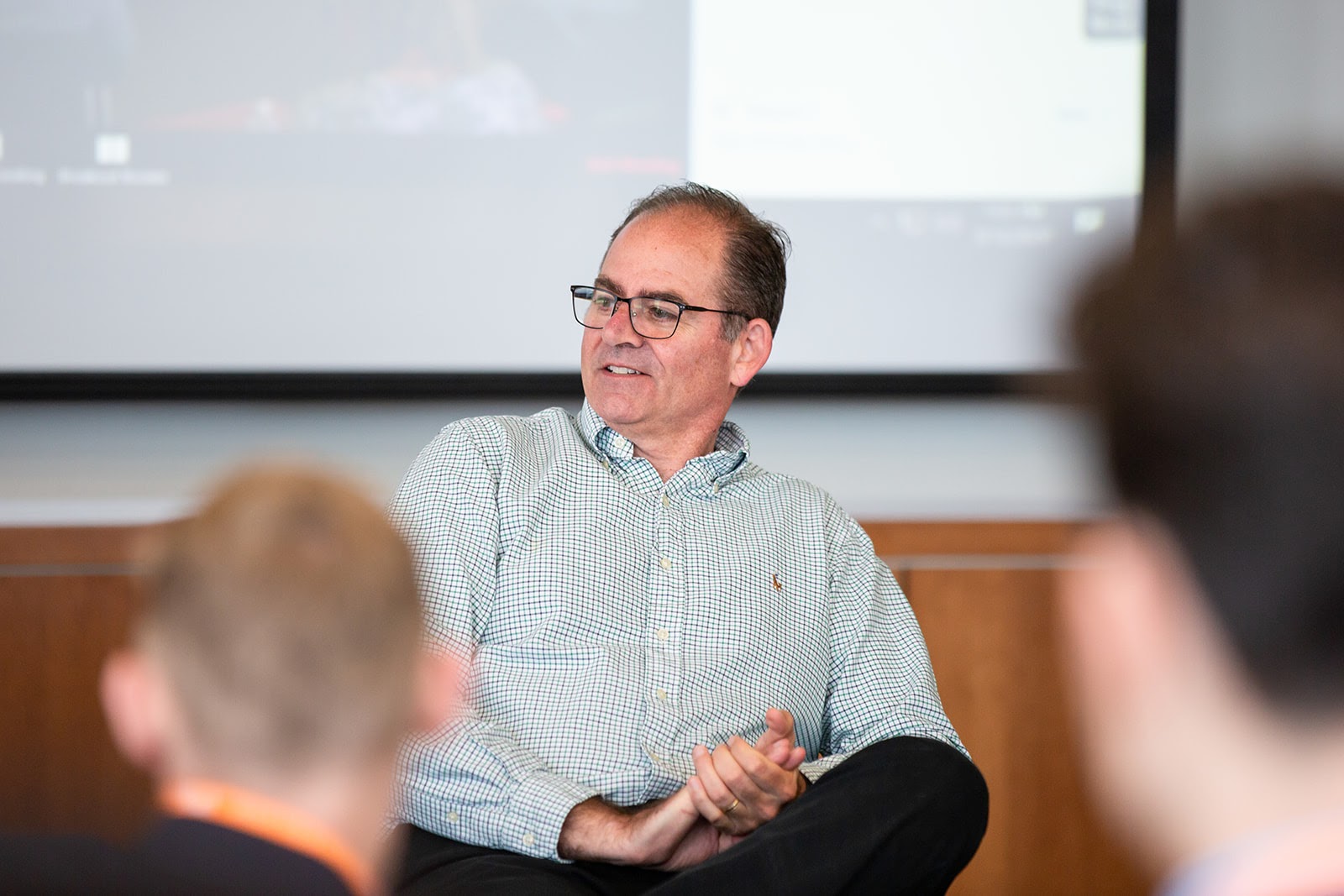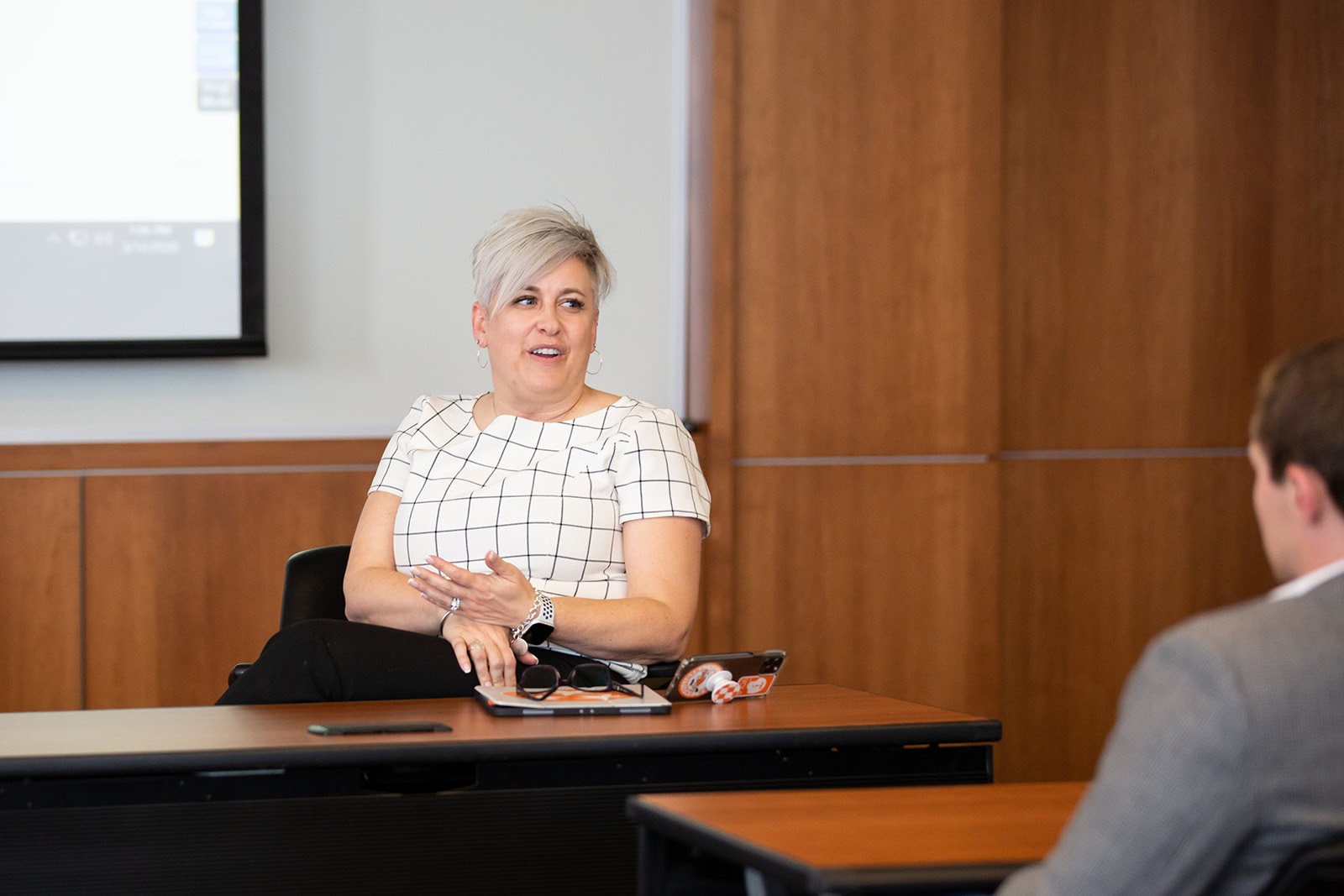On Thursday, March 12, the UT Haslam Online MS in Supply Chain Management held an immersion onsite and panel at the Knoxville campus that focused on COVID-19 and the widespread effects on supply chains, at home and abroad. The event was hosted and moderated by Dr. Tom Goldsby, Haslam Chair in Logistics and Professor, Supply Chain Management, as part of his course SCM 547, Supply Chain Planning and Analysis. During the conversation, Goldsby utilized a panel of supply chain experts to provide insights on issues that have recently arisen as a result of the unprecedented global illness.

To open up the discussion, Goldsby asked the panel to elaborate on the unique challenges caused by the spikes in demand caused by COVID-19. Panelist Taylor Rotella, a UT Grad and Transportation Operation Consultant at Kimberly-Clark Corporate Transportation, described the current situation as “ever-changing.” “In the past week,” Rotella explained, “we’ve seen 30% more volume than ever before.” She reported that demand has risen from many of Kimberly-Clark’s key retailers (Walmart, Sam’s Club, Publix) who are ordering between two and eight times more than normal.
Goldsby then steered the conversation to the ways companies respond to the unexpected challenges posed by a global pandemic. Joe Buckley, Director of Executive Education at UT Haslam College of Business and part of the Global Supply Chain Institute (GSCI), reflected on his experience dealing with natural disasters while at the Tennessee Valley Authority (TVA), likening the challenges being experienced now to those he faced at the TVA following a rash of severe tornadoes seven years ago. Buckley described setting up a war room, where communications became more crucial than ever, just as they are now.

Utilizing the experience and background of panelist Tami Gentry, Polyester Stream Specialty Plastics Supply Chain for Eastman, Goldsby inquired about the ways COVID-19 has impacted international trade routes. “We’ve really had ebbs and flows,” said Gentry, “where we kind of thought, ‘Oh my gosh, some things are going to stop’. With China, Gentry noted, trade has slowed, at least for the moment. “You have a delay in the port receiving, and things getting off the boat in China.” However, since Eastman does business in so many countries across so many fields, Gentry explains that they have adapted by leaning into other high-demand fields with other trade partners that are either less impacted by COVID-19 or are seeing certain trade needs increase as the demand of certain goods also rises.

Goldsby then opened the panel up to a Q&A from the Online MS SCM student audience. When one student inquired about companies setting aside funds for higher-than-usual shipping costs, Rotella noted that, like Buckley’s TVA, her company has set up a war room for times of crisis, where all functions of their supply chain come together to make sure they are aligned on spending before making decisions regarding expedited shipping or distribution that’s more costly than usual.
“Sometimes, these types of situations bring you in touch with a group of people you don’t normally work with,” said Buckley. “And that’s a good thing.”
Digging deeper into the concept of the war room and the notion of elevated costs, Goldsby asked panelists to further speak about companies’ internal responses to a crisis of pandemic proportions. Buckley noted that “some of the things you normally worry about day-to-day get thrown out the window and you focus on just meeting the needs and serving the task at hand.” Buckley also cited an opportunity afforded by a situation like COVID-19: the chance to work more closely than ever with people and divisions that are not part of your normal routine. “Sometimes, these types of situations bring you in touch with a group of people you don’t normally work with,” said Buckley. “And that’s a good thing.”
In the coming days and months, there is no doubt that awareness of supply chains will continue to grow in America. Our nation’s reliance on trade routes and flow will be tested further as the COVID-19 saga continues to unfold, putting supply chain professionals at the forefront of the greatest global crisis of the past 100 years. Despite the circumstances, it’s not without some opportunity for growth. “You have all chosen to be part of a unique situation” noted Rotella, explaining that, when this is over, supply chain professionals will find themselves more bonded with their team members, having helped this nation weather the storm by keeping its supply chains flowing.
